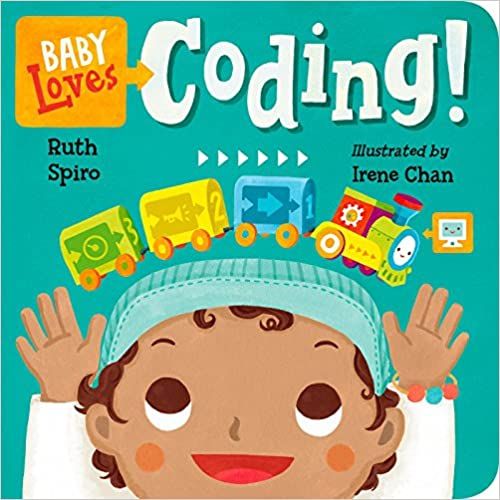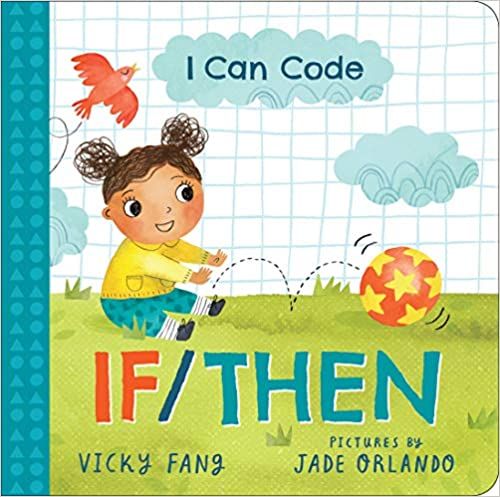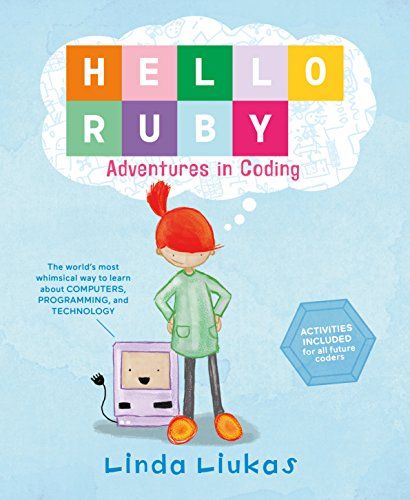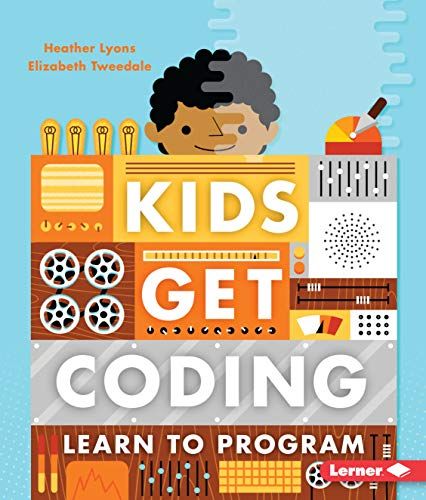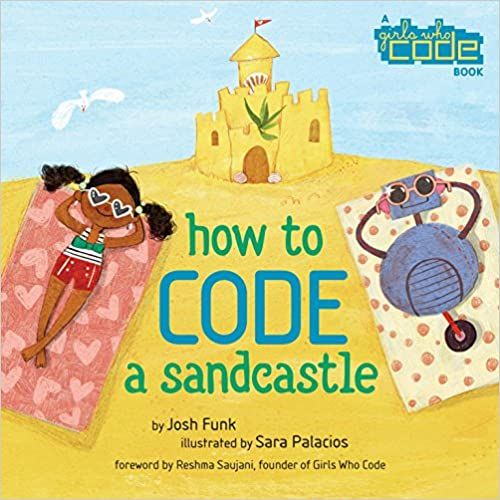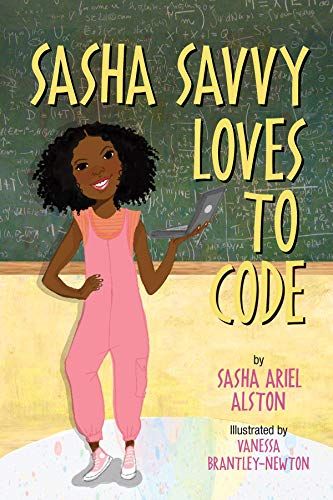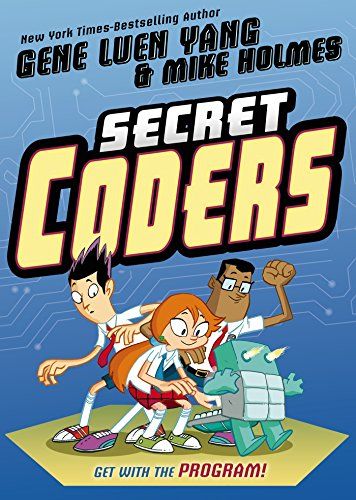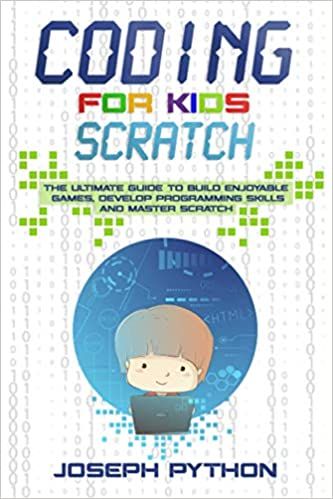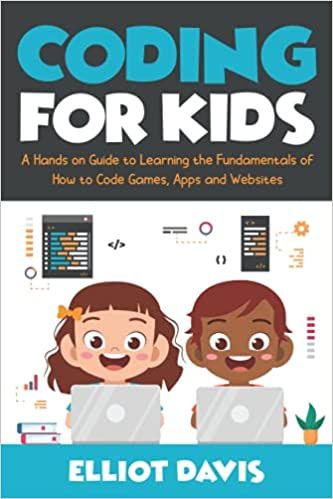12 Coding Books for Kids Who Love Computers
Posted by admin on
With computers being such a central part of our daily lives, they’re so easy to ignore. Until they stop working, of course. Because they do, and always at the most inconvenient times. As a Millennial, I am ashamed to say I know very little about coding and how computers actually work. My fix is take it to the Apple Store and hope for the best.
This isn’t going to work for our kids, though. Their lives have been molded around computers and (recently) distance learning. My kids can handle a PlayStation console better than I can, they can navigate Zoom faster and with more accuracy than my geriatric Millennial butt, and they can’t even count to 100 yet. I am one of those parents that like to feed their kids’ curiosity, so when they asked me how their games work, I froze. I honestly don’t know.
Thankfully there are people out there who are way more capable than I am (literally anyone that breathes most days). A quick trip to the library allowed me to find some age appropriate books to help my kids understand coding. If my kids can figure out what coding can do, maybe they can understand their devices. Do you know what happened? I learned that coding is much more than designing a system to get your favorite game to work: it is a workflow that uses logic to apply to problem solving (in a very basic sense). Coding is awesome.
Here are 12 coding books for kids that will help both them and you.
Coding Books for Toddlers and Preschoolers
Baby Loves Coding by Ruth Spiro and Irene Chan
This book talks about the very basics of coding. It discusses the use of logic, sequence, and patterns to solve problems. Can Baby use the basics of coding to fix his train? You’ll see here in this cute board book.
I Can Code: If/Then by Vicky Fang and Jade Orlando
If/Then is an adorable board book that introduces coding to toddlers. It teaches children about cause and effect and they’ll get to explore concepts like conditions, logic, and rules through exploration and play.
Hello Ruby: Adventures in Coding by Linda Liukas
Ruby is a small girl with a big imagination and a desire to solve any puzzle. Using computer like thinking, she breaks down big problems into smaller ones, makes step-by-step plans, and loves to find patterns through story. This book will help young readers find patterns in their own lives and give them the mental foundation for computer programing when it’s time to learn.
Coding Books for Elementary Age Kids
Learn to Program: Kids Get Coding by Heather Lyons, Elizabeth Tweedale, and Alex Westgate
The Kids Get Coding series is a helpful deeper dive into what programing looks like for different aspects of computer science. Learn To Program gives children a solid foundation to understand how programs work, and what coding does within them. The books also come with exercises and activities to get your little computer programer some hands-on experience as they learn. The series also has books about learning to how understand bugs and internet safety.
Coding Concepts for Kids by Randy Lynn
This book helps build children’s analytical thinking without being tied down to the computer. The activities in this book help kids understand how to do things that a coder needs to do, like write out precise instructions, recognizing patterns, and working efficiently. Showing that concepts of coding can also be helpful in everyday life situations as well.
How to Code a Sandcastle by Josh Funk and Sara Palacios
Pearl and her robot friend, Pascal, have spent all summer trying to build the perfect sandcastle only to have them destroyed by flying frisbees and general beach mayhem. The pair decide to use the concepts of coding to break down their problem into small manageable goals. If they can create a working code, this could be the best beach day ever.
Gabi’s Fabulous Functions by Caroline Karanja and Ben Whitehouse
Did you know that following a recipe is a lot like creating a function in computer code? I didn’t. Here, Gabi and her BFF Adi need to make a special birthday treat. The computer-minded duo use their function knowledge to create the best treat they can make.
Sasha Savvy Loves to Code by Sasha Ariel Alston and Vanessa Brantly-Newton
This is an early reader chapter book. Sasha Savvy is a 10-year-old African American girl who lives in Washington, D.C. When she has to go to summer camp for girls to learn how to code, she thinks it’s going to be super boring. However, having a mom who is a computer developer is helpful when the first day is full of bugs, and adventure.
Coding Books for Middle Grade Readers
Girls Who Code: Learn to Code and Change the World by Reshma Saujani
This book is part how-to and part inspiring real life stories of women who work at places like NASA and Pixar. It gives girls and young women the tools and confidence to go after their coding dreams. It doesn’t matter what interests you, sports, art, or science — there is a place for a girl who codes.
Secret Coders: Get With The Program by Gene Luen Lang and Mike Holmes.
The Stately Academy is brimming with problems to be solved. Who better to solve them, using their prowess and growing coding skills, than Hopper and her friends. They are going to solve every mystery the Academy throws at them. Follow the friends as they work through the mysteries in this series of six graphic novels.
Coding for Kids: Scratch by Joseph Python
If your future computer scientist is interested in creating video games or digital worlds and having their creatures come to life on on the computer, this books is a great launching point. Scratch is a programing language where people can make their own games and interactive stories. Here kids learn about the code, get easy to do activities, and build their own games that they can share with their friends. Once your kid gets a handle on this there are other in this series also teach about coding with Python and Minecraft.
Coding for Kids: A Hands-on Guide to Learning the Fundamentals of How to Code Games by Elliot Davis
This beginner book reviews coding concepts to kids, but also gives them more information about different coding languages. Kids will be able to learn how to make video games, but also how to build websites with HTML, CSS, and Javascript. With more than 50 exercises, there is ample opportunity to practice what you learn in this book.
Need more recommendations? Check out our best programming books for kids!
!doctype>
